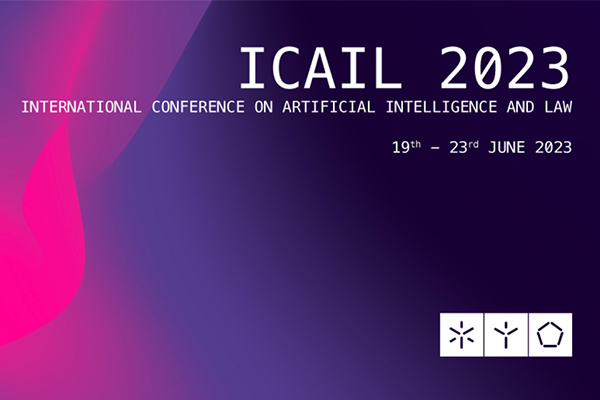
ICAIL 2023 Roundup
Uwais Iqbal • 2023-06-26
A roundup of thoughts from the International Conference of AI and Law (ICAIL) 2023
I had the pleasure of being able to attend the ICAIL 2023 conference at the University of Minho in Braga, Portugal. It was a week full of exciting workshops, cutting-edge research and thought provoking keynote speeches. There were attendees from all over the world coming from academia, industry and the public sector.
I wanted to share my top 5 takeaways from the conference so you can get an idea of some of the topics and issues discussed at the conference.
🔺 Access to Justice
Dr. Natalie Byrom from Justice Lab shared the shocking statistic that 5.1 Billion people worldwide are unable to access meaningful access to justice.
All hope is not lost.
There is a massive role for AI to play in addressing access to justice by democratising the relational expertise of legal advice. While there are structural challenges in applying AI to access to justice, there is an immediate need for AI practitioners to get more involved in these conversation to create trust and confidence in the technology to drive innovation.
🔺 From Models to Systems
Daniel E. Ho from Stanford RegLab underscored the need to transition from prototypes to systems by designing, developing and evaluating AI as embedded in human systems and institutions.
A single AI model is a small part of a very large complex human system.
Instead of evaluating an AI model in silo with abstract metrics, we need to start figuring out how to run randomised control trials with AI embedded into systems to understand the real value and impact that AI can provide in traditional domains like law.
Using AI is not the goal, improving processes and quantifying the improvement by using AI is.
Laura Skylaki and Milda Norkute's paper on the 'Effects of XAI on Legal Process' outlined a practical example of how this can be achieved using user analytics and controlled experiments.
🔺 From Principles to Practice
There has been lots of talk around AI Ethics and principles in recent months. There are 128 frameworks for AI Ethics in the EU alone!
A number of papers and talks stressed the need to transform principles into operational best practices and practical guidance for AI practitioners to adopt.
Joris Hulstijn's paper on 'Computational Accountability' motivates the need for a top-down, middle-auditing and a bottom-up approach for a successful model of accountability.
In particular, there is a value-sensitive design that AI practitioners should adopt through a code of professional ethics or a code of practice.
🔺 Private + Public Sector
The potential of Generative AI and LLMs to transform law firms and legal teams is quite apparent and obvious.
Matthew Lynch from The National Archives UK provided an interesting perspective on how Generative AI and LLMs can be used in the public sector to improve access to legislation as well assist with drafting bills and regulations in government and parliament.
The AI4Legislation workshop on the whole highlighted the role AI can play in the public sector across government departments and institutions as well as in justice systems.
🔺 AI for Social Benefit
A constant theme throughout the conference was the real and lasting impact AI can provide by solving meaningful social problems whether in government, justice systems or even the private sector.
Each of the keynote speeches stressed the importance of getting more smart and talented AI practitioners interested and excited about working on these problems. The demand is very real but there seems to be a supply problem when it comes to talent.
The question in my mind has always been why there aren’t more AI practitioners in this space working on these types of problems. Daniel E. Ho alluded to this by referencing the caricature that most smart people end up working on optimising click-through rates on ads for big tech companies.
Our intellectual capital as a society has been disproportionately distributed to working on problems that have no real social impact or value. This must be addressed if we are to leverage and realise the benefits AI can provide to solving problems with a real and wide social impact.
🤔 Closing Thoughts
The conference was an incredibly enriching experience. It has highlighted several key themes we have already been witnessing at simplexico in our conversations with clients around AI education, technology development, AI governance and ethics.
The conference has impressed that the niche area of AI and law is a space that transcends national boundaries and has a global footprint that isn’t restricted to the private sector. The social value of solving these problems raises the stakes and creates a problem space that is worthy of pursuit.
Resources